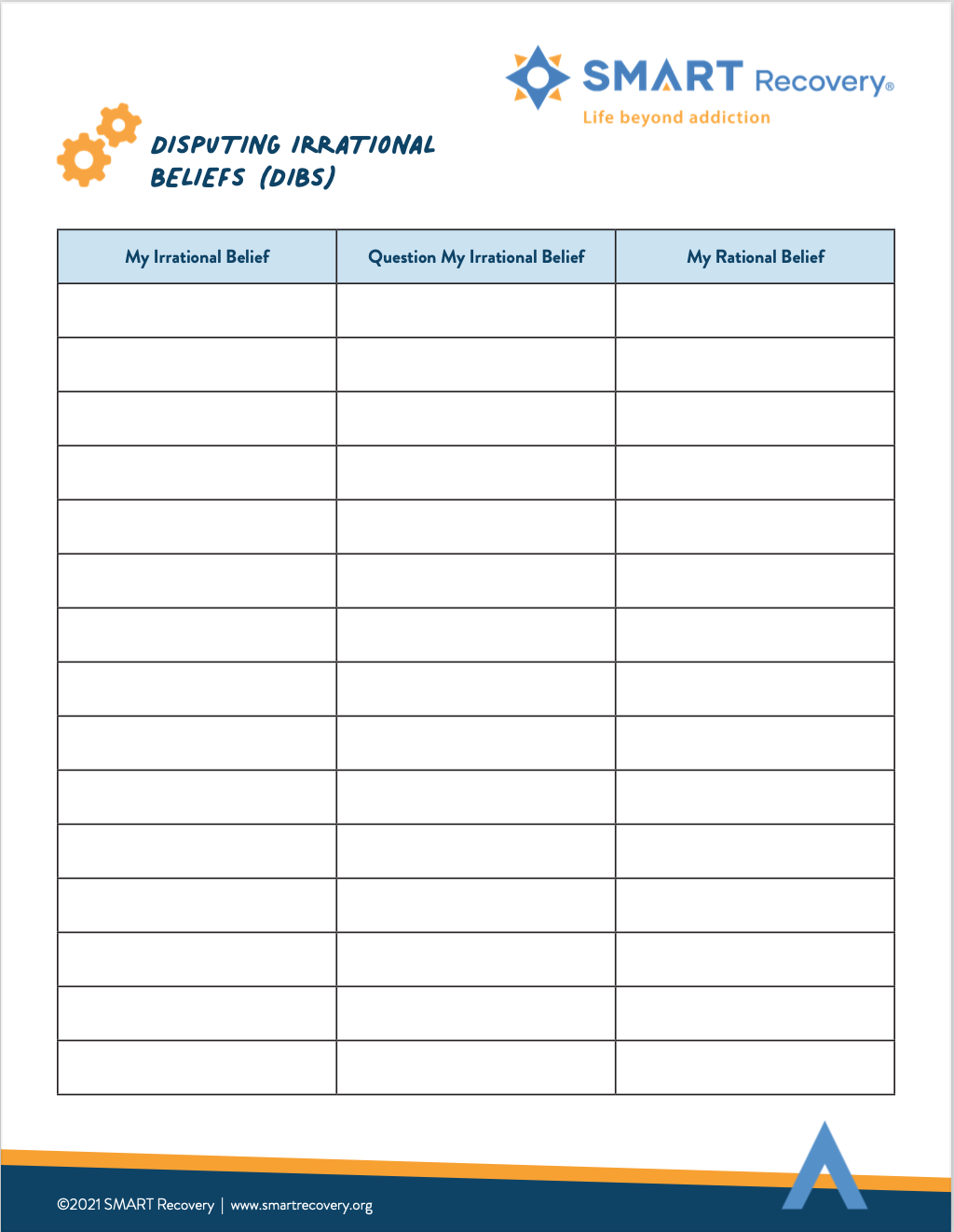Point 2, Point 3
When to use this tool: Use this exercise help participants understand the concept of irrational beliefs and get better at replacing them with rational beliefs.
Example of its use in a SMART meeting:
Write down and say:
An Irrational Belief (IB) is:
- Not True – It’s unrealistic, with no evidence to support it
- Doesn’t make sense – Illogical
- Harmful – It does not help us in the long run
A Rational Belief (RB) is:
- True – Realistic and supported by evidence •
- Makes Sense – Logical •
- Helpful – Helps us get what I want in the long run
Say to participants:
It helps to learn how to replace inaccurate, irrational beliefs with balanced rational beliefs. We can get to the more rational belief by turning the unhelpful irrational belief into a question and then answering it. The answer often provides a more balanced rational belief that can replace the inaccurate irrational one.
Brainstorm with participants: What are some of the inaccurate thoughts you’ve had when wanting to engage in an addictive activity? NOTE: If the group doesn’t come up with many examples, you may suggest some, or use those provided below.
Go through each of the suggested irrational beliefs and invite participants to work out the question and dispute.
After getting the more rational belief, LABEL the more rational belief. Examples:
- Urges are unbearable and I cannot stand them. Q: Are urges unbearable? A: No. Urges are unpleasant but they will not kill me, I can stand them and they are bearable.
- Urges make me use. Q: Do urges make me use? A: No. Urges don’t make me use. I choose to use, so, I can choose not to.
- Giving into an urge will cause no harm. Q: Will giving in to the urge cause no harm? A: No. Giving in and using will threaten my health, my relationships, and my job. I might even get into a fight and get arrested again.
- I will just have one. Q: Will I just have one? A: Maybe, but probably not. I never just have one. I’ll just get drunk again.
- I cannot cope without using. Q: Can I cope without using? A: Yes. My life is actually better when I’m not using. It may not always be easy, but I can cope just fine.
To help participants practice DIBS, you can write these irrational beliefs on the flipchart to let the group dispute them with a question and a rational belief response.
- I’m useless and worthless.
- I’m a complete failure. I will always fail.
- I’ll never be able to stop.
- My partner is useless.
- My partner doesn’t help. He/she wants me to fail.
- Nothing good ever happens to me and it never will.
- Life is unfair. I was born unlucky.
- Life is terrible. It will never get better.
Helpful Links
- Public-Facing Toolbox Page: http://www.smartrecovery.org/disputing-irrational-beliefs
- Updated Tool PDF (03/2021): https://www.smartrecovery.org/wp-content/uploads/2021/03/DIBs-112-updated.pdf


